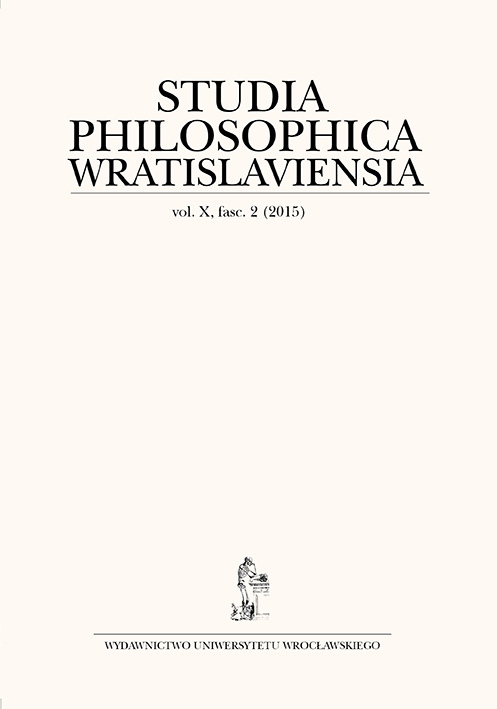

ARTYKUŁY

On the conscious constitution of the world and realistic-idealistic gigantomachy
My article includes a detailed analysis and commentary on the results of Marek Rosiak’s deliberations contained in his book Studia z problematyki realizmu–idea lizmu published in 2012. In it the author, by using the phenomenological method, defends the weak version of realism which he calls a-idealism or impressional realism. I show that this position is in fact, a specific hybridization of realism and idealism.
As Marek Rosiak states, the conscious constitution of objects starts with impres-sions which stimulate consciousness, which are passively endured by consciousness. After that, consciousness is activated only to rise towards higher levels of constitu-tion and in that process — it constitutes the object. Sensual qualities do not exist objectively and independently from consciousness, they are immanent to consciousness, however consciousness receives them as if they were on the outside of it — it does not have an influence on them, therefore, it is passively stimulated by them.
This duality of external-internal character of quality becomes the starting point of specifying the core of the dispute: realism accentuates the external aspect of quality, whereas idealism accentuates the internal one. Realists hold on to the stimulating factor and its external character. Idealists take it this way: if sensual qualities are conditioned internally, then everything else that which is cognizable or whatever exists at all; or the first and the second in some type of entanglement is conditioned that way as well.
All of that, in my opinion, resembles a Platonic gigantomachy, however the argument is about somewhat different issues: contemporary sons of the Earth, stand by trees or any tangible object or rather by what is stimulating in them, whereas friends of sensations formerly friends of ideas remain in the subjective, closed off by that I mean: untouchable and safe and the pleasant world of con-stitution. In this article I draw consequences from this way of solving the dispute between realists and idealists. One of the hard to accept consequences of this solution is the full subjectivization of ontology. I also point to the key postulates of the standpoint taken by Rosiak, in particular to the phenomenological understanding of consciousness as an indivisible and non-spatial intentionality assumed by him.